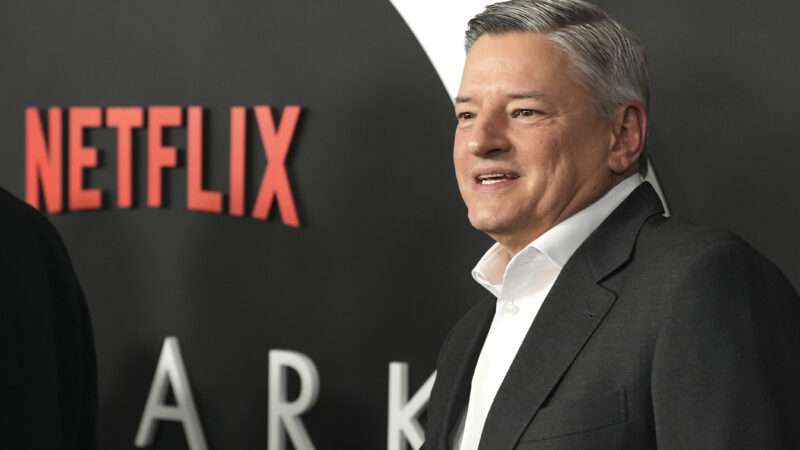
Last year, Dave Chappelle's comedy special, The Closer, drew the ire of the transgender activist community, and Netflix became the target of protests. Ted Sarandos, co-CEO of the streaming giant, initially defended Chappelle's right to create offensive comedy but walked back his comments somewhat in an effort to appease "a group of employees who were definitely feeling pain and hurt."
This left matters somewhat unclear as to whether Netflix would still be inclined to feature artists like Chappelle, whose work involves upsetting people, or whether subjects that offend the sensibilities of progressive employees would be off-limits.
Thankfully, Netflix has just added an "Artistic Expression" policy to its well-publicized company culture memo. This policy states, in no uncertain terms, that the company will continue to platform provocative creators and ideas—and if employees have a problem with that, they should work elsewhere. Here is the policy:
Not everyone will like—or agree with—everything on our service. While every title is different, we approach them based on the same set of principles: we support the artistic expression of the creators we choose to work with; we program for a diversity of audiences and tastes; and we let viewers decide what's appropriate for them, versus having Netflix censor specific artists or voices.
As employees we support the principle that Netflix offers a diversity of stories, even if we find some titles counter to our own personal values. Depending on your role, you may need to work on titles you perceive to be harmful. If you'd find it hard to support our content breadth, Netflix may not be the best place for you.
This is a great statement and should serve as a model for other companies that produce ideological content or are involved in the marketplace of ideas. Many of these firms hire substantial numbers of progressive young people in an attempt to eventually offer content that is relevant to this key demographic. But in recent years, a problem has emerged: Some subset of these millennial and Gen Z employees have adopted an elite college-campus mindset and expect their bosses to proactively eliminate speech that is emotionally upsetting to them, just as they had expected school administrators and professors to do.
Companies thus find themselves in the untenable position of trying to meet the expectations of a small but hostile—and militantly progressive—work force, even though these expectations inevitably work against the interests of millions of customers. (Among the general public, Dave Chappelle is extremely popular.)
Making clear to employees from the get-go that the company is not going to heed unreasonable employee demands relating to speech and expression should be considered a best practice moving forward. Setting these expectations upfront will deprive hostile employees of their sense of betrayal while reassuring customers that excessive outrage will never dictate content choices. If there's a single, voluntarily-adoptable corporate policy that could de-accelerate the culture war, it's probably this one.
The post Netflix Adds 'Artistic Expression' Policy, Says It Will Not 'Censor Specific Artists' appeared first on Reason.com.







